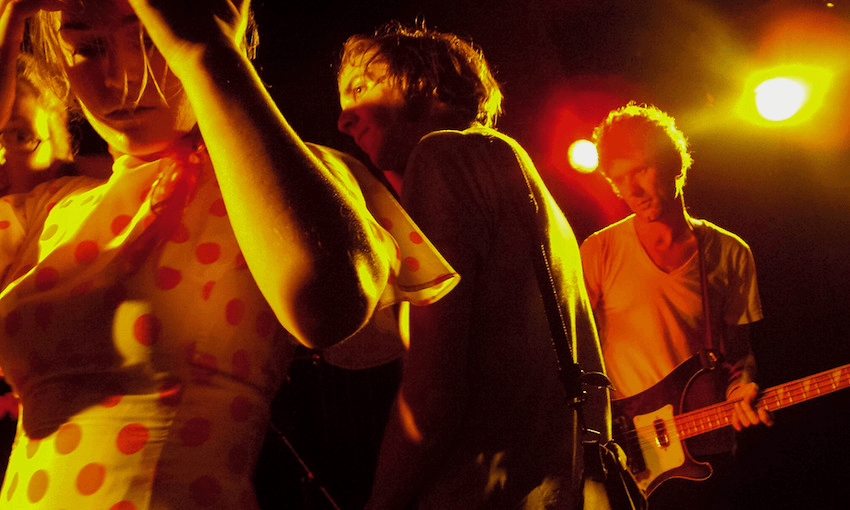As part of a $175 million arts package, a new $7.5 million ‘Careers Support for Creative Jobseekers’ programme was announced today, building on ‘the most successful aspects’ of the former Pathways to Arts and Cultural Employment (Pace) programme, which ran from 2001-2012. Former Pace recipient Henry Oliver writes on what he learned on what became colloquially known as the ‘artist’s dole’.
I owe my career to Pace. Well, kind of.
In 2004, I was 22 with a fresh Bachelor of Arts. I’d known a BA wasn’t a path to steady employment but hadn’t anticipated that it could sometimes be antithetical to employment – it seemed like some recruiters of menial jobs didn’t want to hire people with degrees in things like philosophy and film studies. We were lazy, daydreamy, unreliable.
With no career opportunities, I enrolled to do a Masters in cultural studies (before it became a right-wing conspiracy theory), but two weeks before the semester started, was overcome with doubt and promptly quit. I joined a band called Die! Die! Die! and for the next three years, we played shows in every town in the country that would have us and eventually, tiny clubs and dive bars around the world.
The band wasn’t lazy, daydreamy or unreliable. From the beginning, we practised at least four days a week when we weren’t on tour. When we were, we did it relentlessly, playing everywhere we could, as many times as we could. Unlike other bands I’d been in, it wasn’t a hobby. It was fun, but it wasn’t for fun. It wasn’t a job because it didn’t pay. It was a vocation. And, in many ways, it was possible because of Pace.
I heard about Pace from other musicians. They called it the “artist’s benefit” or the “artist’s dole”. It was like a secret someone whispered in your ear, then you passed it on. I’d be told by my Winz case manager that they hadn’t heard of it or that it no longer existed. “You’ve got to get this guy,” someone told me, offering the name of an in-the-know case manager whose name I’ve long forgotten. “He’ll sort you out.”
After being transferred from the Queen St office to the Ponsonby office and getting a “good” case manager, getting on Pace was straightforward. Dealing with Winz, you have to know what you’re entitled to and ask for it relentlessly. You need a benefit mentor to tell you how it works and what you can get. And the privilege of thinking you deserve it. Die! Die! Die! toured so much, it was easy to show that we had a “pathway to arts and culture employment”. “We aren’t making enough to make a living now,” I’d tell my case manager, “but it can’t be long until we will be.” It wasn’t a lie so much as an over-indulgence of the naivety it can take to pursue a career in the arts.
Instead of the “Job Club” I had to attend on the regular dole – where we sat in a boardroom reading the classified and showing our supervisor the two jobs we would apply for that week – I’d sit in a room full of musicians and actors and painters, and one by one we’d talk about our opportunities and listen to someone talk about how to budget, how to make a basic sheet, how to find new opportunities, and how to “monetise” (the first time I heard that word) our creativity.
At the time, I thought it was all bullshit – I just wanted to play aggressive music at horrifying volume. But being on Pace taught me how to make a living from my own creativity. It gave me the opportunity to do it with a $200-a-week safety net. It gave me time to learn about how to live on an intermittent income, about balancing work that pays well with work that provides creative opportunities. It taught me how to hustle, how to find and create opportunities, how to work hard and be dependable in an industry where many people don’t and aren’t.
When I quit the band, I thought I’d said goodbye to all that. I went back to university and became a lawyer. But after three years I was ready to give up on that too. I’d been freelance writing on the side and wanted to try to make a career of it. By then, Pace was over, but my time in the band provided a blueprint of how to do it – hustle, find and create opportunities, work hard and be dependable. And I’ve been able to make a living writing and editing until recently – when I was made redundant by Bauer Media, along with 236 other people.
When you’re living it, you quickly learn that without government support, New Zealand would barely have any artists who aren’t hobbyists. The market just can’t sustain it. But that’s true of a lot of things in New Zealand: film, television, even farms. So I’m glad that Pace is back, to give people the opportunity I had – to at least attempt to turn their creative or artistic aspirations into a sustainable career. I just hope you don’t need to know someone who knows someone to find out about it. And I hope it’s not only offered at Winz’s Ponsonby office.

